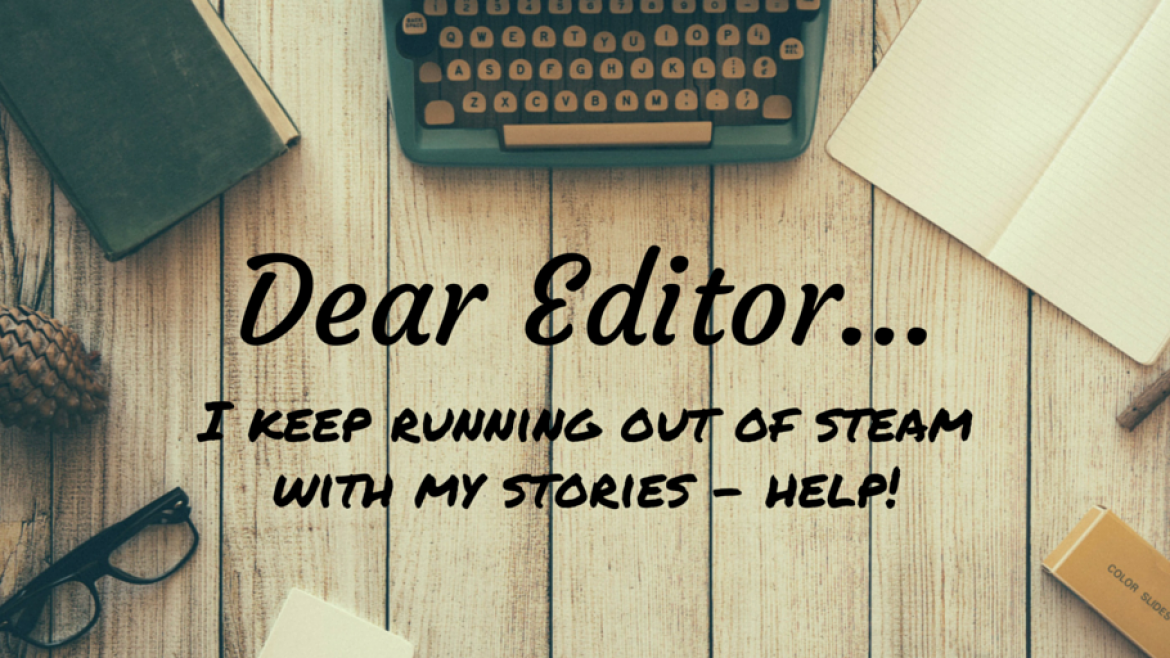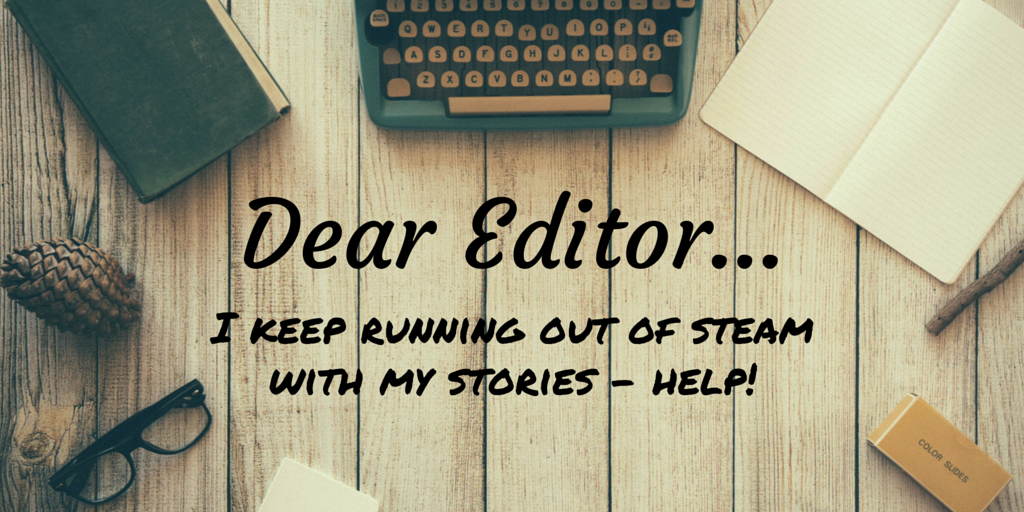

Dear Editor,
I was so excited when I started writing my new project – but now I’m halfway through I’ve run out of steam. What do I do now?
Thanks,
Molly
Dear Molly,
What a great question, and I’m sure a dilemma a lot of writers, whether they are new or experienced, find themselves in. But let me reassure you, there is always light at the end of the tunnel, it just takes sometimes looking at your manuscript with a fresh pair of eyes!
If you really have hit a brick wall, walk away, make yourself a cup of tea and even get a change of scenery. But don’t leave your work-in-progress for too long, you need to keep feeling motivated and excited about what you have achieved already.
Then, try to pinpoint the root of the problem, because this way you’ll work out what it is which needs either re-working or re-envisioning. Start by looking at your characters. Have you thought about every aspect that defines them? Do they have enough emotional conflict to sustain the course of the book? If the answer is ‘maybe’ or even ‘no’, then before you go any further, you need to think about adding the all-important layers to your characters. Knowing them inside out before you start writing can help to ensure you are peeling away their personality and vulnerabilities as the story unfolds.
Or it could be that your characters burst onto the page with so much drama, revealing all their layers in one fell swoop, that you are not only exhausted, but there is nothing else for the reader to learn! If this is the case, then look once again at your characters, and work out what is important to reveal now, and what could be held back to show your characters changing and developing over the course of their journey. For example, if your hero admits upfront that he never wants marriage and children because he lost his pregnant fiancée in an accident, then what does the heroine have to learn? The layers are already exposed, his vulnerabilities out in the open… where do they go from here? So the best thing to do is think strategically about where revelations would be best revealed – how holding aspects of your characters’ vulnerabilities back, and letting them learn who they are together as they fall in love, may help you over that first hurdle.
On the other hand, you may have written the most fabulous opening chapter. It grabs everyone’s attention, it sets the scene beautifully, but then you just don’t know how to top it, or even where you take the story from there. You have first chapter syndrome! Ask yourself whether your chapter is centered around a really great, powerful scenario and whether this then has enough emotional potential to build on into a great story with a compelling plot. Take the opening of Grey’s Anatomy for example. Waking up next to your one-night-stand only to find out he’s your boss is a classic trope. But it’s what happens next – how this scenario becomes a catalyst for so much more – which is the key. If you haven’t put the building blocks for a bigger, deeper storyline in place in the beginning then you’re giving yourself a mountain to climb with the rest of the book.
First chapters are 100% supposed to grab your reader’s attention, introduce your characters and provide something memorable which sets your book apart from everyone else. But they are also meant to lay the ground work for the eventual journey you are going to take your readers and characters on. So, if you find yourself running out of steam, ask yourself – what clues have I left behind, and how am I going to answer them moving forward? Take it one chapter at a time, and make each chapter count. It may be that you need multiple conflict threads running through your story, and this is fine! Because, remember, your characters are changing as their relationship develops. They will very rarely end the book the same person they started. So when you hit a wall, think about taking your characters around it if you just cannot go through it or over it!
Keeping up the momentum is not always easy, but remind yourself of the excitement you felt when you started, and how the characters you have created deserve to have their story told. So pace yourself, and put that into your writing. If something isn’t working, then be honest with yourself and go back to where you felt it started to go a little off-piste. Because if you have strong characters and sustainable conflicts, and patience, you will finish your book and be a better writer for getting over the tough hurdles. Good luck, and please do just keep writing!
Megan & the Harlequin Editors x




